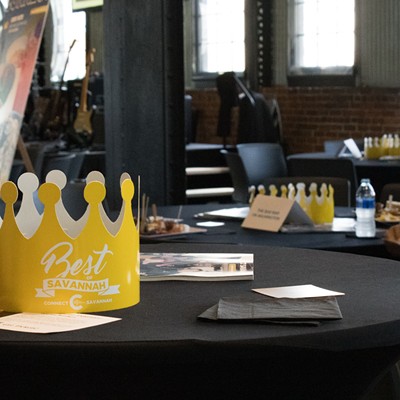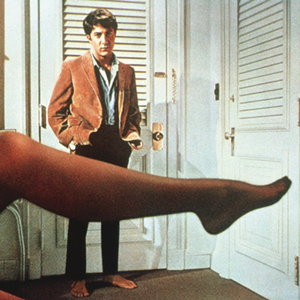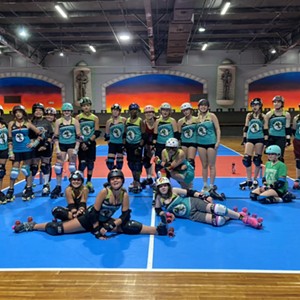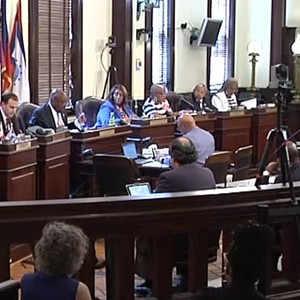Best Writer
Trelani Michelle
When Trelani Michelle writes, she does her best to write to her people. That is why she is so relatable. That is why she is good. A friend and former mentor liked to tell her, “I don’t convince. I convey.” And, that is the best way to sum up Michelle as a writer: a conveyor of people; a voice of not only her generation, but of the pillars who make up the ruins of history. Her history; our history.
Trelani Michelle stops to read all the historical markers, researches who the land first belonged to, asks “where yo’ great-grandparents” were from, and traces the roots of the beats and flavors. Having authored “Krak Teet,” an oral history of black Savannah elders, she refers to herself as the modern-day Zora Neale Hurston.
One of her latest works, “Krak Teet: A Catalog of Black Savannah’s Biographies,” that was published in December of 2019, dives into the parts of history that define the people of Savannah, but that often go unheard. It is the first-hand accounts of grandchildren of the enslaved. She interviewed 19 African American elders over the age of 80 about living in the city between 1920 and1970. She took all of those stories and memories and created a book that has turned into a project that challenges the notion of black interest in literature and history. People of Savannah connected with it because it was familiar and true.
“We’re so much more alike than we are different,” Michelle said. “I think that’s why people resonate with it; they see themselves in it.”
That is the case with all of Michelle’s works — “Krak Teet,” “Girls Who Ain’t Afraid to Curse When Communicating with God,” “Women Who Ain’t Afraid to Curse When Communicating with God,” “Purple Petals: Letters to Self,” “Getting Across,” and “What the Devil Meant for Bad” — they present a set of truths that are challenging, yet relatable. Yesterday’s truths, but somehow today’s familiar truths. A sense of “blackness” in totality beyond the rigid history often storied by old, white men, and instead translated as a complete portrait of humanity by a young, black woman who postures not only the importance of Southern, Black culture for the sake of entertainment, but as a mode of transmitted legacy for the importance of not just her people, but all people.
From writing her first complete story at the age of 14, to now at the age of 33, Michelle has spent nearly two decades documenting the veiled histories across the African diaspora and encouraging her readers to tell their own stories, in their own language and their own dialect. To further in that effort, she’s currently working on a book that teaches other how to collect oral histories from their families, neighborhoods, churches, or some outside community that they’re interested in.
Also in the cards, a “Krak Teet” documentary and a creative hub for other women writers.
“There are a good bit of writer’s residencies out there — places for writers to get away from their everyday lives and be inspired to create — but they can feel pretty uninviting to women writers with children and non-white women writers,” Michelle explained. “I want to create a space that’s more accessible.”
That seems to be a theme for Michell’s work: accessibility. Accessibility for people to be able to tell their stories, but also for those stories to be heard in a way that is attainable for anyone with the desire to read or hear them. She unchains language with literature that is so profoundly her voice, but at the same time, is an echo of her subjects. Her work is proof of the beautiful possibility of what can happen when broken bits of talk and memory are pieced together.
Brandy Simpkins contributed to this article.


















